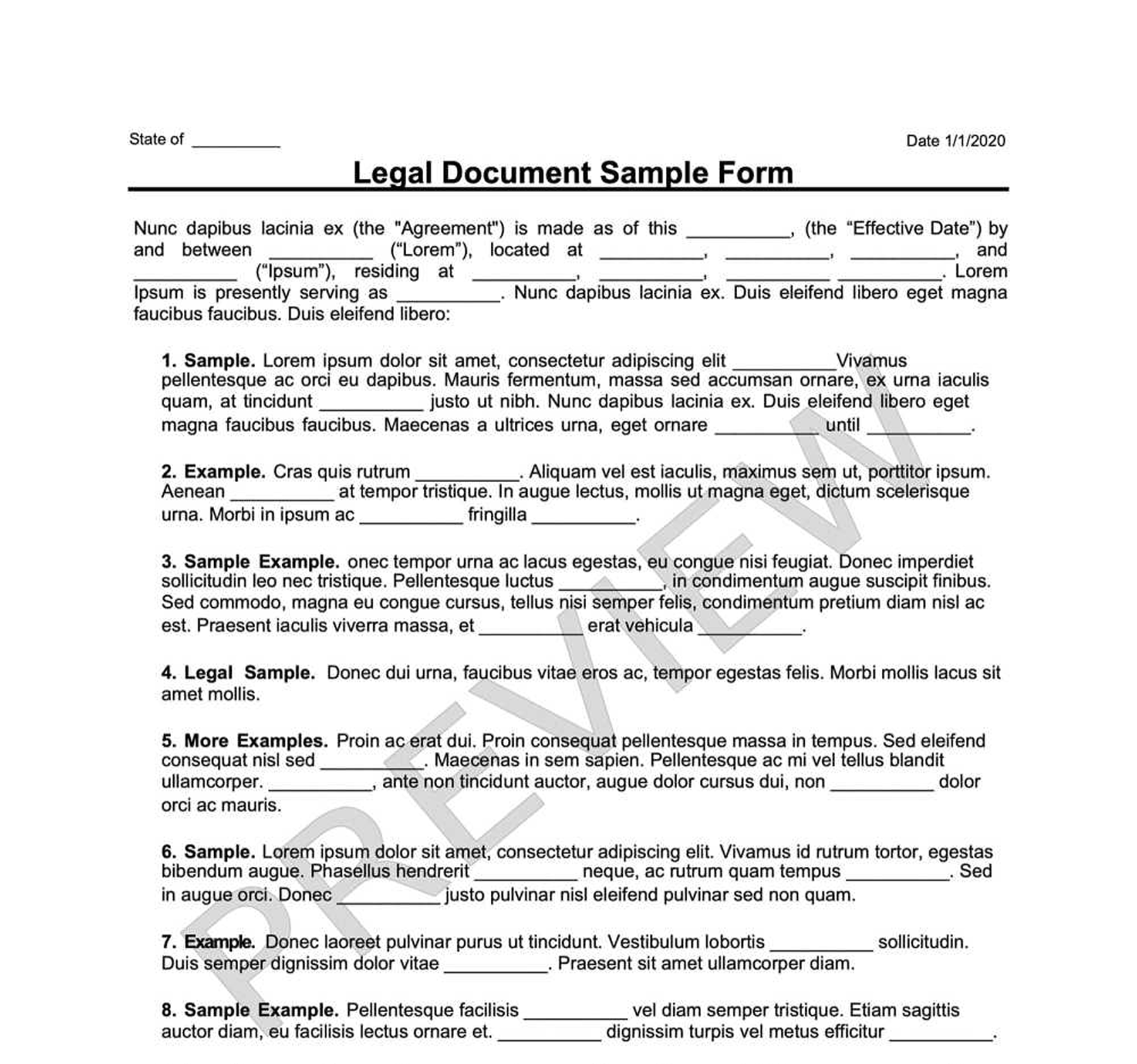Non-Compete Agreement
In a Non-Compete Agreement, one party to the agreement agrees to not compete against the other in the same industry.

How it Works
Build your selected document.
Answer a few simple questions with step-by-step instructions.
Print & download forms instantly. Sign & make it legal.
What Is a Non-Compete Agreement?
Specific industries are more competitive than others. The companies in those industries may have to put in more effort to stay relevant and make money. Since the companies compete against each other on the market, they often would rather not have to worry about competing against their employees.
That is the basis of the Non-Compete Agreement. Before you spend many resources on training an employee to become a star performer, you can use this document to ensure the employee will not leave you in the lurch. After having benefited from all the training, they could pursue employment at a competitor or start a company competing against you or your company.
What Is a Non-Compete Agreement?
The Non-Compete Agreement is most commonly entered into between an employer and its employee. It can also be used when hiring an independent contractor. It's vital to note that even though most states recognize the Non-Compete Agreement, California, Oklahoma, and North Dakota do not.
One of the reasons an employer may choose to require Non-Compete Agreements, besides the provision mentioned above of expensive training for employees, is to reduce turnover. However, this agreement may reduce a company's bargaining power and negatively affect it in the long run.
Other Names for Non-Compete Agreement
Depending on your state, a Non-Compete Agreement may also be known as:
- Non-Compete Covenant
- Non-Compete Contract
- Non-Compete Policy
- Covenant Not to Compete
- Agreement Not to Compete
- Non-Compete Form
Who Needs a Non-Compete Agreement?
Specific industries depend on the Non-Compete Agreements more than others, for example, the tech industry. However, anyone can ask employees to sign a Non-Compete if they want to protect against the competition.
Usually, these types of agreements are presented to new employees in the hiring process. It is just as common to induce current employees to enter into such a contract.
Why Use Swyft Forms for Your Non-Compete Agreement
Customized for you, by you
Create your own documents by answering our easy-to-understand questionnaires to get exactly what you need out of your Non-Compete Agreement.
Specific to Your Jurisdiction
Laws vary by location. Each document on Swyft Forms is customized for your state.
How to Create a Non-Compete Agreement with Swyft Forms
A Non-Compete does not have to be complicated, just as long as it is thorough. Lowering your competition is one less thing you have to worry about. All you need is a ready-to-go template and a few details.
Let Swyft Forms help with our extensive library of attorney-vetted legal forms. The process is fast and easy. All you have to do is fill out our easy-to-understand questionnaire. Once complete, simply download your form as a PDF or Word document from your secure online account.
What Information Will I Need to Create My Non-Compete Agreement?
To create your document, please provide:
- Protected Party Information: The legal name and contact information of the protected party.
- Non-Competitor Information: The legal name and contact information of the non-competitor.
- The Effective Date: The date when the agreement goes into effect.
- Governing Law: Specify the legal system used in the event of a dispute.
- Scope: Describes the types of industries and businesses covered by the agreement, including the geographic range.
- Agreement Duration: Specify the duration of the contract.
- Additional Clauses: Non-solicitation, non-disclosure, non-disparagement, or any other clause.
- Signatures: Both parties must sign the contract.
Non-Compete Agreement Terms
- Non-Disclosure: A clause where one party agrees not to disclose the confidential information belonging to the other party
- Non-Solicitation: A clause forbidding one party from soliciting or poaching employees and clients
- Employee Handbook: A staff manual describing an employer's expectations and company values
- Turnover: The frequency of a company having to replace its employees
- Trade Secret: A type of intellectual property
- Cease and Desist: A legal letter sent to a business or person demanding the ceasing of a specific activity or activities, which is required before filing a lawsuit
- Injunction: A court order barring someone from engaging in a particular action at the threat of contempt of court
- Severability: The quality of a document, such as an agreement or a lawmakers' bill, being valid even when some parts or provisions are struck out (valid without the offending parts or provisions)
Non-Compete Agreement Signing Requirements
An employee does not have to sign a Non-Compete Agreement, in which case it is within the employer's right to withdraw the job offer. For the agreement to be legally binding, both parties must sign it. Notarization is not required by law, but you could choose to have a witness at the signing.
What to Do with Your Non-Compete Agreement
After the signing, both parties should receive a copy of the Non-Compete Agreement. Companies usually keep their documents in the HR department, along with other employee files.
Other Names for Non-Compete Agreement
- Non-Compete Agreement Form
- Non-Compete Agreement Document
- Non-Compete Agreement Agreement
- Non-Compete Agreement Contract
- Non-Compete Agreement Template
- Non-Compete Agreement Checklist
Who Needs a Non-Compete Agreement?
Why Use Swyft Forms for Your Non-Compete Agreement
Customized for you, by you
Specific to Your Jurisdiction
Why choose Swyft Forms?
Create professional documents for thousands of purposes.
Make unlimited documents and revisions.
Our documents are vetted by lawyers and are applicable to all 50 states.
